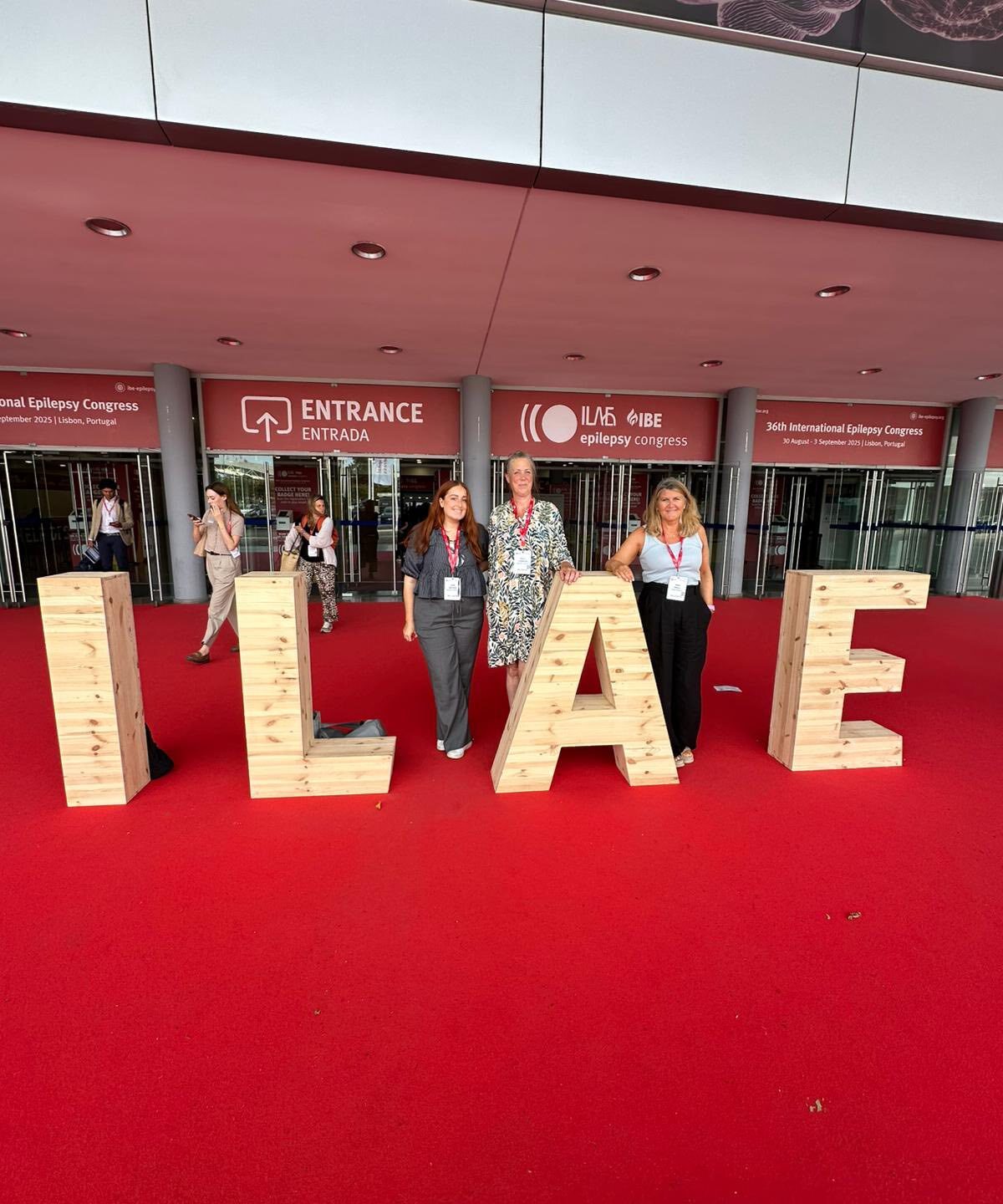Dravet Syndrome UK attended the 35th International Epilepsy Congress (IEC) in Lisbon, where we not only attended key presentations but also connected with leading clinicians, pharmaceutical companies focused on new treatments for Dravet Syndrome, and other patient organisations. Our Chief Scientific Officer, Ceri Hughes, has highlighted the key themes that emerged from this conference.
IEC 2025 highlighted how everyone is working together – patients, clinicians, researchers, and advocates alike. Together, this collaborative community is driving meaningful progress toward better outcomes and improved quality of life for everyone impacted by Dravet Syndrome.
Empowering Patients
The Presidential Symposium, titled “Patient-centred healthcare: from challenge to change,” set the tone for IEC 2025 by amplifying patient voices in research and care discussions. In many sessions, patient representatives, including DSUK’s Chair of Trustees, Galia Wilson, shared their stories. Galia shared the benefit of receiving a genetic diagnosis that enabled her son to access better treatments and helped her family find a supportive community.
Patient advocates showed how involving families in research makes studies more relevant and meaningful; the The Mental Health Intervention for Children with Epilepsy (MICE) Project study team presented evidence showing that this involvement offers patients a sense of purpose and helps researchers understand what really matters to families. The first-time presentation of the IBE’s Global Epilepsy Needs Study revealed patient priorities such as seizure unpredictability, difficulties accessing healthcare, and the urgent need for specialised complex epilepsy services. This large-scale study is a vital educational tool for healthcare professionals, policymakers, and researchers in recognising patients’ holistic needs.
IEC 2025 also delivered important messages supporting transparent conversations with patients and families about SUDEP, status epilepticus, nutritional issues, and long-term decline. Providing this knowledge early ensures that preventative strategies can be put in place, as patients cannot address risks they do not know about.
Collaboration, communication, and education remain essential to empower patients as active partners in shaping research and care.
Rethinking Clinical Trial Design
Discussions reflected that the era of placebo arms in clinical trials, where a group of patients don’t receive the study treatment, is evolving. Currently, these are needed to look for differences between those given the new treatment and those not. Ethical concerns have been raised around this, particularly in invasive and risky trials. Presenters acknowledged the ongoing SCN1A Horizons Natural History study and its potential to provide baseline data for people with Dravet Syndrome; this could eliminate the need for a comparison group and provide more equal access to treatment during trials.
Furthermore, there was recognition that measuring treatment success solely by a reduction in motor seizures does not reflect the broader goals that families and clinicians share. Families and doctors said it’s important to track things like how long seizures last, memory and learning, and behaviour. Currently, there is a lack of appropriate tools to measure changes in these areas which makes it difficult to include them in clinical trials. The addition of tests that track changes in the body was discussed, not only to bring in clinical data, but also as a method to include people with non-motor seizure types.
Finding the right balance between approval processes and clinically meaningful changes will be critical for making future therapies more accessible and valuable for patients and families.
Disease Modification updates
The congress featured passionate calls from experts like Ana Mingorance to continue advancing disease-modifying treatments for Dravet Syndrome and related complex epilepsies. Disease-modifying treatments aim to change the biological mechanisms that cause the condition so as to improve not only seizures, but cognition, behaviour, and quality of life. Two particularly promising advances for Dravet Syndrome received attention at IEC 2025.
Encoded Therapeutics’ ETX101 gene therapy trial for Dravet Syndrome has received Regenerative Medicine Advanced Therapy designation from the US regulatory body, a status that signals particularly promising early results. While not yet influencing UK regulatory pathways directly, this reflects encouraging early data. ETX101 aims to increase the number of healthy copies of the SCN1A gene and, if successful, could offer a one-time treatment with lasting impact.
Stoke Therapeutics presented three-year results for zorevunersen, a disease-modifying treatment currently in clinical trials for Dravet Syndrome. Long-term data show substantial, long-lasting reductions in seizures, alongside improvements in cognition and behaviour. If the next phase of clinical trials confirm these benefits, zorevunersen has the potential to have a lasting impact on patient quality of life.
These developments give real hope for treatments that could change the course of Dravet Syndrome, not just controlling seizures, but improving daily life.

